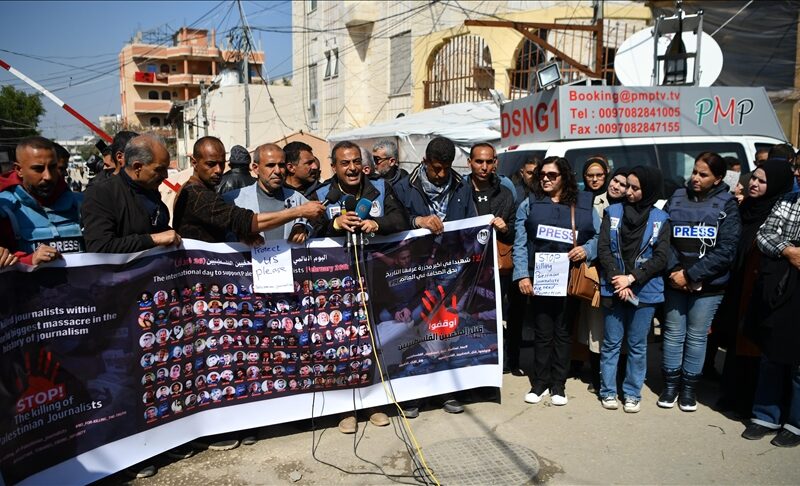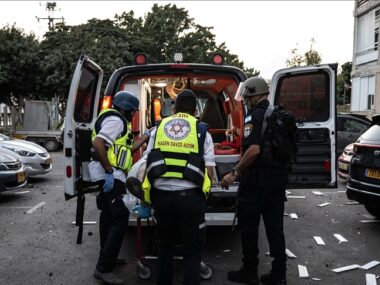The Alliance of Mediterranean News Agencies condemns ‘any type of violence and aggression against journalists and other media personnel while doing their job in a war zone’
The Alliance of Mediterranean News Agencies (AMAN) reiterated its disapproval of violence against journalists and media professionals in war zones, reiterating the Palestinian Journalists Syndicate’s demand on the International Day of Solidarity with Palestinian Journalists.
AMAN issued a statement condemning “any form of violence and attack against journalists and other media people while doing their jobs in a conflict zone.”
According to an announcement by General Supervisor of Palestinian Official Media Minister Ahmad Assaf, February 26 is International Day of Solidarity with Palestinian Journalists, as declared by the Palestinian Journalists Syndicate.
In a statement, Assaf said: “This is to draw attention to the atrocities committed by the Israeli occupation against our fellow journalists, as part of the systematic campaign of extermination waged by the occupation against our people.”
AMAN, a network of Mediterranean-based national news agencies, has regularly condemned the killings of Palestinian journalists and media staff, as well as persons of other nationalities, most notably during Israel’s invasion on Gaza.
AMAN also voiced solidarity and support to Palestinian journalists who have endured the most.
The Israeli onslaught on the enclave also resulted in the deaths of 132 journalists.
Israel is accused of genocide before the International Court of Justice. An interim verdict issued in January ordered Tel Aviv to halt genocidal acts and take steps to ensure that residents in Gaza get humanitarian aid.
Following a Hamas attack on October 7, Israel started a devastating incursion in the Gaza Strip. The ensuing Israeli bombardment has killed over 29,000 people and injured over 69,000, resulting in widespread destruction and shortages of needs.
According to the United Nations, the Israeli war on Gaza has forced 85% of the territory’s inhabitants into internal displacement due to acute shortages of food, clean water, and medication, while 60% of the enclave’s infrastructure has been damaged or destroyed.










